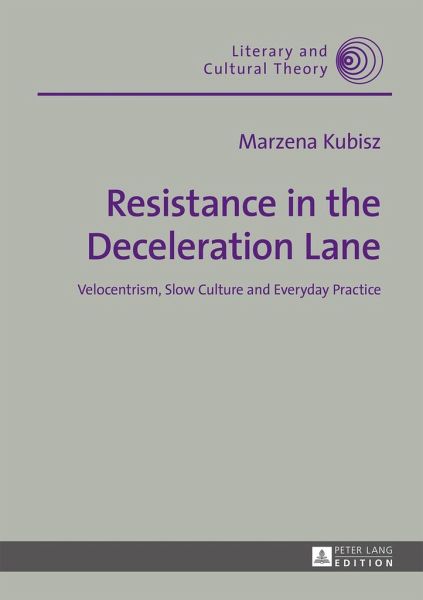
Resistance in the Deceleration Lane
Velocentrism, Slow Culture and Everyday Practice
Versandkostenfrei!
Versandfertig in 6-10 Tagen
70,50 €
inkl. MwSt.

PAYBACK Punkte
0 °P sammeln!
Motivated by a desire to reflect critically on the ways in which speeds, both high and low, and their representations affect the construction, deconstruction and reconstruction of meanings around particular cultural texts, images and practices, Resistance in the Deceleration Lane uses the velocentric perspective to examine the phenomenon of «slow living» and its rhetoric. The book analyzes cultural practices which are inspired by the conviction that the increased speed of everyday life cannot be accepted unquestioningly. It portrays slowness as a strategy of contestation and resistance on on...
Motivated by a desire to reflect critically on the ways in which speeds, both high and low, and their representations affect the construction, deconstruction and reconstruction of meanings around particular cultural texts, images and practices, Resistance in the Deceleration Lane uses the velocentric perspective to examine the phenomenon of «slow living» and its rhetoric. The book analyzes cultural practices which are inspired by the conviction that the increased speed of everyday life cannot be accepted unquestioningly. It portrays slowness as a strategy of contestation and resistance on one hand, and on the other it highlights the process of the gradual commercialization of the slow logo and suggests the rise of a post-slow stage in the history of speed.














